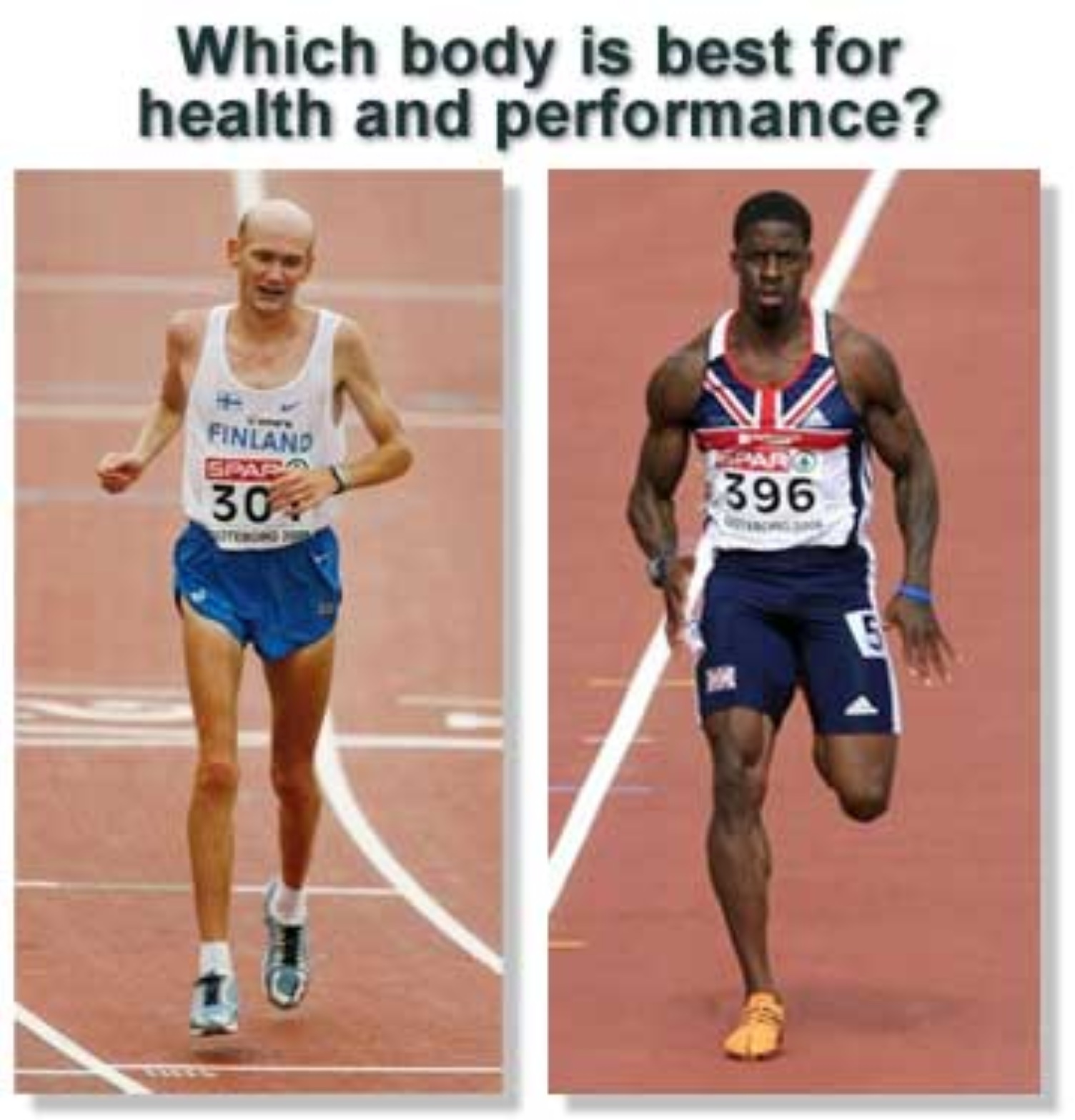In the last article, we started digging into common traps that sabotage New Year’s fervor. Of these, there was “low fat,” “low calorie,” “low anything” foods, and what you needed to know to sift through that surf. Also, we talked about realistic body transformations (and how most are anything but “real”), and capped things off [...]

In the last article, we started digging into common traps that sabotage New Year’s fervor. Of these, there was “low fat,” “low calorie,” “low anything” foods, and what you needed to know to sift through that surf. Also, we talked about realistic body transformations (and how most are anything but “real”), and capped things off with the idea being able to spot reduce body fat. Now, we march ahead for more tips.
Does boosting testosterone improve sex drive?
Will aerobic training destroy your physique?
What’s the deal with nutrition as it relates to training?
You’ll find out soon.
1. Improving sex drive by boosting testosterone – true or false?

I’ve said this a million times, but you should listen to Dr. Robert Sapolsky’s lectures. Go to iTunes, find the Standford lectures, and start listening. You should also read Why Zebras Don’t Get Ulcers. Both of these sources is where the following comes from.
Most people with low sex drive seek refuge in trying to boost testosterone. It makes sense on the outskirts, as testosterone is one of the hormones that defines “man.” It’s produced in the testes and helps with all the wonderful secondary sex characteristics of men, like muscle mass.
Sadly, it seems that — in the realm of natural possibility — boosting testosterone isn’t really going to boost your sex drive. The correlation here being between testosterone and sex drive, and you can find positive correlations between the two.
How then could boosting testosterone not boost sex drive? Because it might be that lots of sex is what causes a higher testosterone level, not the other way around. So the jury is still out on this one, but it isn’t quite as clear as it’s thought to be. (Or so it seems.)
2. Dichotomizing training and nutrition

Training and nutrition are complimentary, and your nutrition intake should reflect your training program. Think of training as the spark that makes the body want to do things differently. This then effects how the body uses nutrients and calories.
The vast majority of people looking for, and for lack of a better term, an “athletic” physique or an “X” physique or a “power” physique—you know what I mean—should start with the right kind of training that not only emphasis the right muscles for said look, but also shifts physiology in such a way that will have the body using the incoming nutrients and calories in a way that benefits said adaptations.
By the same token, if you’re doing a bulkzilla program, you need to go bulkzilla in the kitchen. If you’re in a calorie deficit, you probably need to put your progress in a crock pot and slow cook it.
Most people that complain about their gains going down the tubes on a deficit or whatever simply don’t know how to adjust their training to work with their nutrition. They get so obsessed over immediate progress that it’s like running into a concrete wall. Picking a nutrition plan and training program aren’t isolated processes.
3. Fat loss is an isolated bucket of exercise
Given the above tip, and the idea of training changing how your body functions, you should know that nothing beats the right kind of training when searching for a specific kind of body development. More often than not, this type of training involves meaningful and somewhat intense muscle tension. Even if you want to lose fat, you shouldn’t prioritize anything over typical “strength” work. I’m a fan of barbell and bodyweight training, myself.
You need to trash the idea of “fat loss training” happening in an isolated bucket. Your body isn’t an isolated system. If you want to change, you have to fundamentally change how your physiology goes about its business, not necessarily do something that’s going to “blast fat” for thirty minutes.
In general, my viewpoint is this:
- Strength training (used as a general term): drives the long term physiological change in the muscular direction
- Extra “fat loss”: things done in the short term to provide an extra kick in energy expenditure or with some kind of hormonal aim
In general, without the strength work (of any sorts), you’re going to be working up hill. It’s the staple, even when prioritizing fat loss.
4. Marathoner vs. sprinter argument

Stick around the world long enough, and you’ll find a comparison between a marathon runner and a sprinter that goes something like this: if you run a mile, you’ll wither into a stick. Instead, you should sprint because, well, that’ll make you turn into a sprinter.
Some truth is here in that sprinting errs more on the side of physiological change that benefits the power look mentioned before. But the problem is that the marathon runner has absolutely zero need for those kinds of adaptations, so it’s a purposeful point of neglect.
When you’re challenged to run 26.2 miles, any extra slab of meat on you increases your energy consumption and also the load crashing down upon your foot with each stride. Ten pounds might not seem like a lot, but across 26.2 miles it sure is. And besides, those ten pounds serve zero purpose when you only need enough effort to gently scurry across pavement.
The message here is that training for a marathon is different than doing some aerobic training here and there which is different than doing some aerobic training atop some sprinting and weight lifting.
Don’t get me wrong: I don’t run, because I don’t like running. But running a little bit, if you enjoy it, won’t destroy you as long as you don’t neglect everything else. Extreme running training will create lots of noise, and encourages adaptations against that power “X” physique look mentioned before. But as long as you prioritize, you’ll find your way.
In conclusion…
First, if you’re looking for a better sex drive, the answer might be within sex itself.
Second, your training and nutrition should compliment one another.
And third, don’t train just to train, train to encourage the changes you want to be expressed. If you want to be muscular and powerful, know that running long distances like a marathoner isn’t going to product that kind of body. That doesn’t, however, mean that a little aerobic training here and there will melt you like the Wicked Witch.
=====
See other articles in this series:
+++++
Photo Credit: mandrill, strawberries